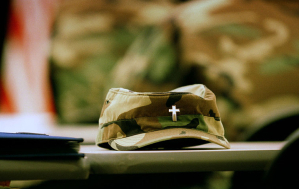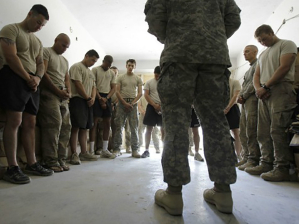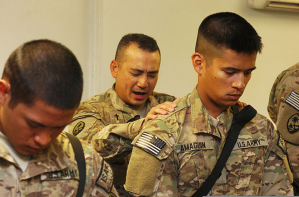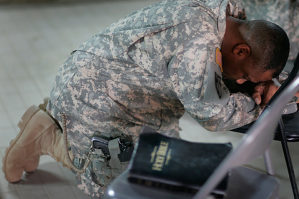
For years, many Christians in the United States have taken the honorable, life-changing step of joining the military's ranks and fighting for their country. Now some of them claim that the military has become a "hostile work environment" to Christianity.
In an exclusive report by Jacqueline Klimas of The Washington Times, "religious freedom advocates" have argued that Christians are leaving the U.S. military or face discouragement from joining at all because the environment has become unfriendly to Christian beliefs. Michael Berry, senior counsel at Texas-based legal organization Liberty Institute, cited as an example recent high-profile cases of military chaplains being punished for expressing their beliefs in private counseling sessions.
"People of faith are going to stay away from the military," Berry warned. "I can't tell you how many moms and dads I've spoken to who say, 'My son or daughter wants to join the military, [but] in light of what you've described, I'm not sure I want to let them join the military anymore,' and I don't blame them."
Berry added that he "would have serious reservations about my own kids joining" the armed forces. He argued that the "hostile work environment" has spread through all the branches of the U.S. military.
"The problem is getting worse, not better, despite our efforts," Berry said. "There is a culture [of] hostility [toward] religion in the military right now."

Douglas Lee, president of the Chaplain Alliance for Religious Liberty, noted that the hostility toward religion in the military will make it difficult for him to find potential recruits to fill chaplain positions. According to Kilmas, Lee's organization helps find people who want to be chaplains and ensures that they are qualified to serve in the armed forces.
"I know people who get out, officers and chaplains, who've said, 'I can't serve the way I want to in this environment,'" Lee, who also served as an Army chaplain, said. "People who've said, 'Because of the religious liberty challenges I see, I think I'll serve somewhere else.'"
Travis Weber, director of the Center for Religious Liberty at the Family Research Council, told Klimas that all religious groups have faced problems within the military in the past. However, he claimed that Christians in the military are being singled out for persecution because of their religious expression.
"Navy Chaplain Lt. Cmdr. Wes Modder was removed from his position counseling sailors and could be kicked out of the military for expressing his views on marriage and homosexuality in private sessions," Klimas wrote. "Berry is representing Lt. Cmdr. Modder, who is still on active duty in Charleston, S.C., as the case is reviewed at a higher level."

Department of Defense spokesman Lt. Cmdr. Nate Christensen defended the current policies in regards to chaplains expressing their religious beliefs.
"The Department of Defense respects, places a high value on and supports by policy the rights of members of the military services to observe the tenets of their respective religions or to have no religious beliefs," Christensen said. "The mission of the chaplain corps is to provide care and the opportunity for service members, their families and other authorized personnel to exercise their constitutional right to the free exercise of religion."
Berry argued that Modder's case could potentially set a dangerous precedent in the civilian world, where the government could punish religious and church leaders whose sense of morality does not match those from the state.
"If what happened to Chaplain Modder is allowed to stand, it could foretell more instances in which the government tells priests, ministers, chaplains, etc. that their views are unacceptable," Berry said.

Lee contended that military commanders lacked the education on where to draw the line in expressing religion in the workplace, hence the "knee-jerk reaction to any show of religion."
Klimas cited numbers from the Department of Defense on the amount of active-duty chaplains in the military, which totaled 2,837. From that group, 437 members were affiliated with the Southern Baptist Convention, more than 200 with the Roman Catholic Church, 26 were Jewish, and one was Hindu.






